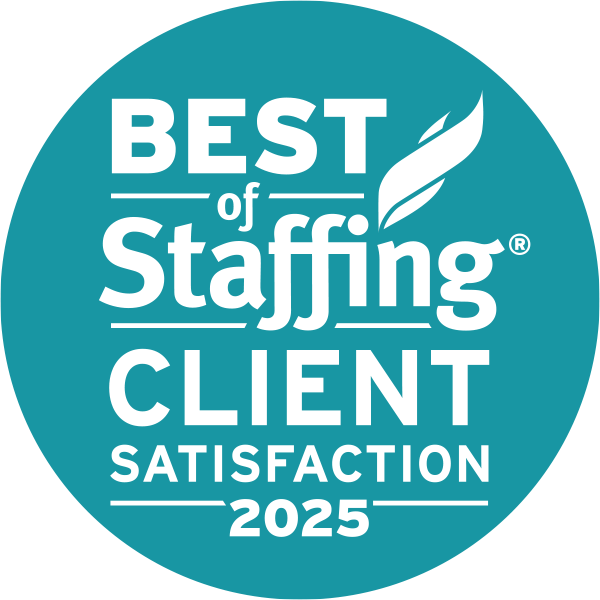Updated June 14, 2024
Nursing shortages are currently a huge concern in the United States. The US population is rapidly aging, and healthcare providers continue to leave the industry because of burnout and other issues. This means facilities have high turnover rates. Some of the more remote locations may not even have the staff they need to keep patients safe.
One solution to these problems is travel nursing. Facilities can get the qualified staff they need, and nurses can enjoy the benefits of traveling to new locations, meeting new people, and getting better pay.
If you’ve been considering travel nursing, you must understand what the job requires. How do you know if you’re prepared for this type of position? If you're not sure if travel nursing is right for you, here are a few questions to ask yourself before seeking your first assignment.
Do you have enough experience?
Many healthcare facilities want travel nurses with at least 18 to 24 months of bedside experience. Speak with your recruiter to determine if you have enough on-the-job training. You may find that you need to work a bit longer as a traditional nurse before going the travel nurse route.
What contract terms are important to you?
You should consider the length of the assignments you take on. For most travel nurses who are just starting out, choosing shorter assignments can be a good option since it gives you a real idea of what travel nursing is all about. You also don’t want to get stuck in a location you don’t like for months at a time.
Contracts can last as long as six months or as little as eight weeks. However, the length of the assignment is not all you want to consider.
Think about bill rates and housing stipends. Your recruiter can help you determine the payment and benefits packages that are most important to you. These elements can then be used to filter the jobs best suited for your goals during your employment search.
Do you have the right licenses?
Jumping from state to state to find work as a travel nurse is certainly possible, but only if you have the proper licensure. All travel nurses have to be licensed in the state where they practice, which can be tricky.
As a travel nurse, you will be responsible for obtaining licenses before taking on a position, but one way to make this easier is to apply for a compact license. Right now, up to 39 states participate in the Nurse Licensure Compact. More states are planning to join in the future, so getting this type of license is a good choice.

Is your paperwork in order?
Travel nursing can involve a ton of paperwork. Signing contracts, sending authorizations for background checks, and onboarding documents for every assignment only add to the confusion. You’ll need to be organized to keep everything straight. The good news is that Prolink will help you keep your paperwork under control. We make easy work of things like applications, onboarding documents, and other papers you may have to sign, read, or fill out.
By turning to the dedicated team of recruiters at Prolink, you can get help managing paperwork. With our help, applications and onboarding documents become much simpler.
How will you find and secure housing?
One of the most important things you want to know before accepting any travel nurse posting is what kind of housing is available. Ask lots of questions about the available options and whether you’ll receive a housing stipend.
If you’re traveling with other people or with pets, it can be tougher to find housing, so you’ll want to keep that in mind as you plan. The last thing you want is to limit your options.
What will you take with you in assignment?
Because you’ll be moving so often as a travel nurse, you want to pack light. There are many furnished rentals available in larger (and sometimes even smaller) markets, so you may be able to find housing with furniture included. Think carefully about the clothing you take. Consider the weather you can expect and try to pack accordingly.
You will also want to have a few items that remind you of your home. Getting homesick can happen, especially when you start out, so consider what comforts you.

Where will you work?
Travel nursing lets you visit many locations, from Alaska to Hawaii and everywhere in between. Considering your preferences can help you narrow down your choices. Do you like hot or cold weather? Are you okay with more humid environments, or do you prefer a drier climate?
If there’s a city you’ve always wanted to live in, choosing a position there can give you a chance to do so. Of course, the more flexible you are about your postings, the better your chances of finding jobs quickly.
Will you specialize?
Travel nurses who specialize in certain fields will be more in demand and have an opportunity to earn higher salaries. Travel nurses can specialize in subfields like oncology, cardiology, geriatrics, and critical care.
By specializing, you may find that hospitals want to float you from one unit to another, which can mean longer placements. You’ll also know you’ll be helping manage critical shortages and improving patient care, all while earning higher amounts for your training and experience.
Ready to live the travel nurse lifestyle?
Prolink's travel nurses have good odds of finding work right away. With their clinical skills and willingness to help, travel nurses can have their recruiters secure them work in other states and all-new healthcare facilities. As long as you have answered the above questions and come away satisfied that you can meet the challenges of the occupation, you may find that travel nursing is indeed right for you.
Partner with Prolink and get paired with a motivated healthcare recruiter. We can help you find a job and guide you through obtaining the right licensure. We take the stress out of travel nursing. Reach out to us today or click below to start on the path toward a rewarding and lucrative career.









